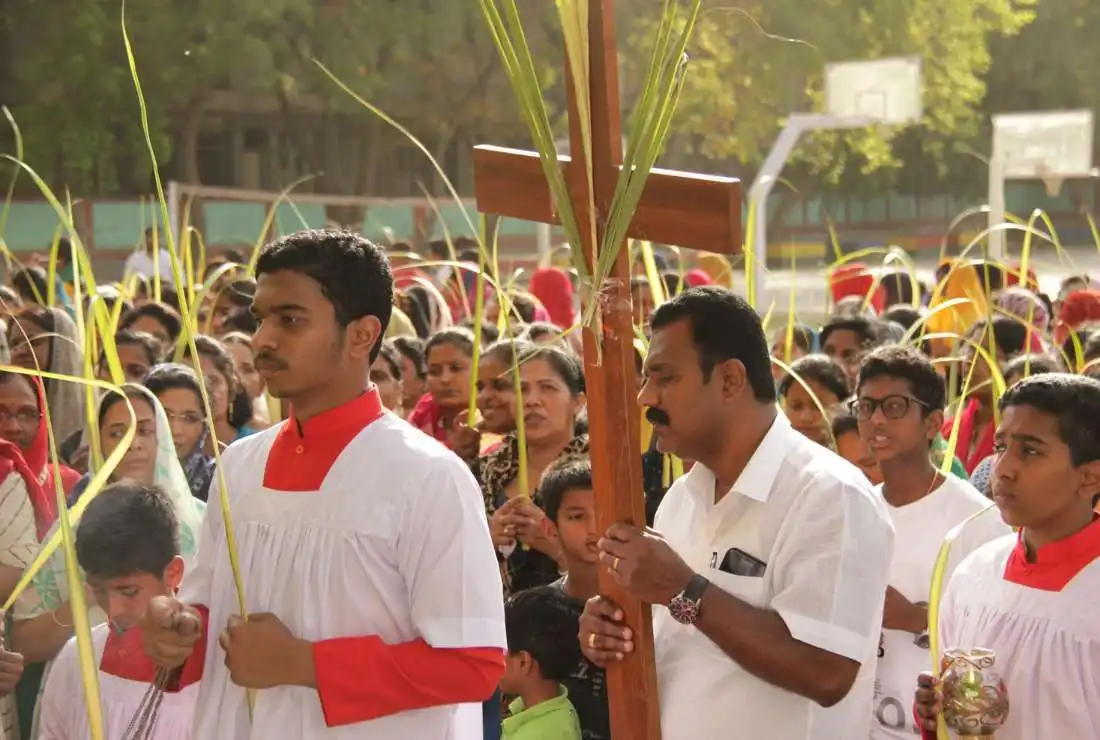The Indian government’s Minority Commission has called upon a Christian organization to provide a comprehensive report regarding the violence against Christians, following the group’s appeal for Prime Minister Narendra Modi’s involvement five months ago.
On September 21, during a meeting in New Delhi, the National Commission for Minorities requested the United Christian Forum (UCF), an ecumenical entity, to submit this report within one month. Commission chairman, Sardar Iqbal Singh Lalpura, conveyed that they intend to conduct their own examination based on the UCF’s report and will subsequently present a comprehensive report to Prime Minister Modi. Christian leader A. C. Michael, who led the delegation, confirmed this development.
The UCF initiated this request for Prime Minister Modi’s intervention to address the escalating violence against Christians following Modi’s visit to the Sacred Heart Cathedral in New Delhi on Easter Sunday, April 9.
The UCF, responsible for documenting incidents of violence against Christians in India, asserts that attacks have surged, particularly after 11 of India’s 28 states introduced extensive anti-conversion laws. Most of these states are governed by Modi’s pro-Hindu Bharatiya Janata Party (BJP). According to Michael, these anti-conversion laws contradict the essence of Article 25, which guarantees religious freedom for Indians. He added that these laws are often misused by fringe pro-Hindu groups to target Christians.
The forum contends that governmental indifference contributes to the rise in anti-Christian violence. They reported 525 incidents of violence across 23 Indian states up until August this year, compared to 505 incidents for the entire previous year.
The delegation included John Dayal, the spokesperson of the All India Catholic Union, as well as UCF executive members Tehmina Arora and Siju Thomas.

Michael remarked positively on the meeting with Lalpura, expressing encouragement. Lalpura assured the Christian leaders that the commission would address the growing persecution of Christians and urged them to dispatch fact-finding teams to areas affected by violence.
Uttar Pradesh, India’s most populous state, ranks highest in incidents of violence against Christians, followed by Chhattisgarh and Jharkhand in central India. Uttar Pradesh is governed by the BJP, which also wields significant influence in the two central Indian states.
In Uttar Pradesh, Christians constitute a mere 0.18 percent of the state’s 200 million population, with the majority being Hindus. Generally, Christian presence is less than one percent in central and northern Indian states.
Christians in Chhattisgarh and Jharkhand primarily belong to tribal communities, and Hindu groups aligned with the BJP have launched a nationwide campaign called “Ghar Vapasi” (returning home) to convert them to Hinduism.
Michael stated that their forthcoming report would encompass comprehensive details of every recorded anti-Christian incident. It will also address the anti-conversion laws, violent assaults on Christians, and issues related to reservation status, all of which are pressing concerns for the Christian community in India.
Christian leaders have expressed that their community feels marginalized. For instance, the National Minorities Commission currently lacks a Christian member, although it includes representatives from Buddhist and Sikh backgrounds. Indian Christians outnumber adherents of these religions.
Lalpura pledged to expedite the appointment of a Christian member, according to Michael. In their letter to Prime Minister Modi, the UCF called for the inclusion of Dalits (formerly known as untouchables) and tribal Christians in India’s affirmative action policies. Such policies reserve quotas in government jobs, educational institutions, and legislative bodies to integrate these marginalized groups into society. Despite recommendations from various committees, successive governments have denied reservation status to Christians, arguing that Christianity does not have a caste system, and therefore, there cannot be Dalits among Christians.
